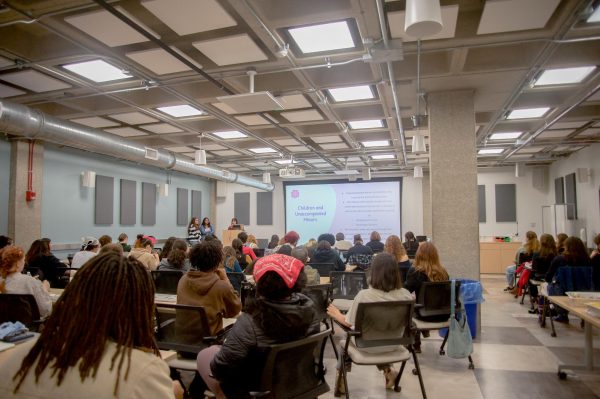Creative Writing Majors Should Be Taken Seriously
When I tell people that I’m a Creative Writing major, I’m often met with skepticism. People, especially older people, often ask how I plan to find a successful career with a Creative Writing degree. My instinct is to answer this question in a way that will put these people in their place. However, the truth is that I don’t have a better answer than, “I don’t know, maybe teaching.” They’ve got a point. There are plenty of brilliant graduates with degrees like mine who can’t find meaningful work. Meanwhile, their counterparts in fields like computer science get offered well-paying jobs before they even graduate from college. Now that I’m two years away from graduating, stories like these are starting to hit a little too close to home.
I feel self-conscious about my major among my peers as well. There’s a stereotype that “right-brain” activities like writing are easier and more fun than “left-brain” activities. While those around me spend their days on problem sets, labs, and four hours of daily instrument practice, I sit in front of my computer and make things up. Of course, my friends majoring in STEM fields have been nothing but supportive about my chosen pathway. They treat my work seriously and acknowledge the effort I put into it. Nonetheless, I still make jokes about the ease of my coursework compared to theirs when we study together. These jokes are funny — I am a Creative Writing major, after all — but they also speak to the feeling of inadequacy that can sometimes creep up on me.
My experience speaks to a larger issue. Our culture places value on certain disciplines over others. I will never forget the day my middle school science teacher sat in front of our class and told us not to become writers. He argued that those in STEM contribute more directly to societal welfare than those in the arts and make money while doing it. STEM fields get more respect because of their economic potential. Educational institutions follow the priorities of the larger economy and produce students and workers who will have the most economic success, leading to more funding, more alumni donations, and so on. Meanwhile, many high schools and colleges have become home to infamously underfunded arts programs. This sends the message to students that our marketability is more important than our individual strengths. No wonder I get embarrassed.
Despite all of this, I am proud to be a Creative Writing major. Language is one of the most fundamental elements of the world we live in. It’s hard to go anywhere or do anything without engaging with language, whether it is in the form of traffic signs, text messages, or Opinions columns. Majoring in Creative Writing is a chance for me to focus on honing my skills in this basic but essential discipline. I try to keep in mind the gravity that words can have and take my studies as seriously as I would if I were studying Computer Science or Violin Performance. Besides that, it’s what I love to do. Nothing else gives me the satisfaction of putting words on a page and rearranging them until they make sense. That should be reason enough to study it.
Oberlin is one of the few colleges that offers an undergraduate Creative Writing major. I’m fortunate to be at a school that values the discipline enough to create a separate department for it. Oberlin Creative Writing professors are incredible, and every class I’ve taken so far has opened doors to things I’d never thought possible. However, the program still falls short in some areas. In March, Aniella Day wrote an Opinions piece for the Review that highlights some of the limitations of the department, specifically the challenges of getting seats in high-demand classes and of applying to the major. It’s an unfortunate truth that there aren’t enough Creative Writing faculty to meet the demand for classes and that the department has to turn people away from the major in order to keep itself from buckling under its own weight. The obvious solution would be for the College to hire more professors so that the Creative Writing department can make room for everyone who’s interested. But with most departments on campus hurting for resources, it doesn’t seem like the College is going to dole out money to the Creative Writing program anytime soon.
If it were up to me, creative writing would be a more commonly available and respected course of study at undergraduate institutions. I genuinely think the world would be a better place if students had the opportunity to focus on articulating ideas and communicating with others. However, it’s much too idealistic for my only solution to be: “We need more creative writing programs.” At this point, I think there would have to be an enormous cultural shift for that to happen. For now, the most important thing is for those of us studying creative writing, and humanities in general, to recognize our value. In a world that so often makes us feel embarrassed about what we do, we need to remind ourselves and others that our contributions are meaningful. If we continue to assert ourselves, maybe there will be hope for the next generation of writers and artists.


